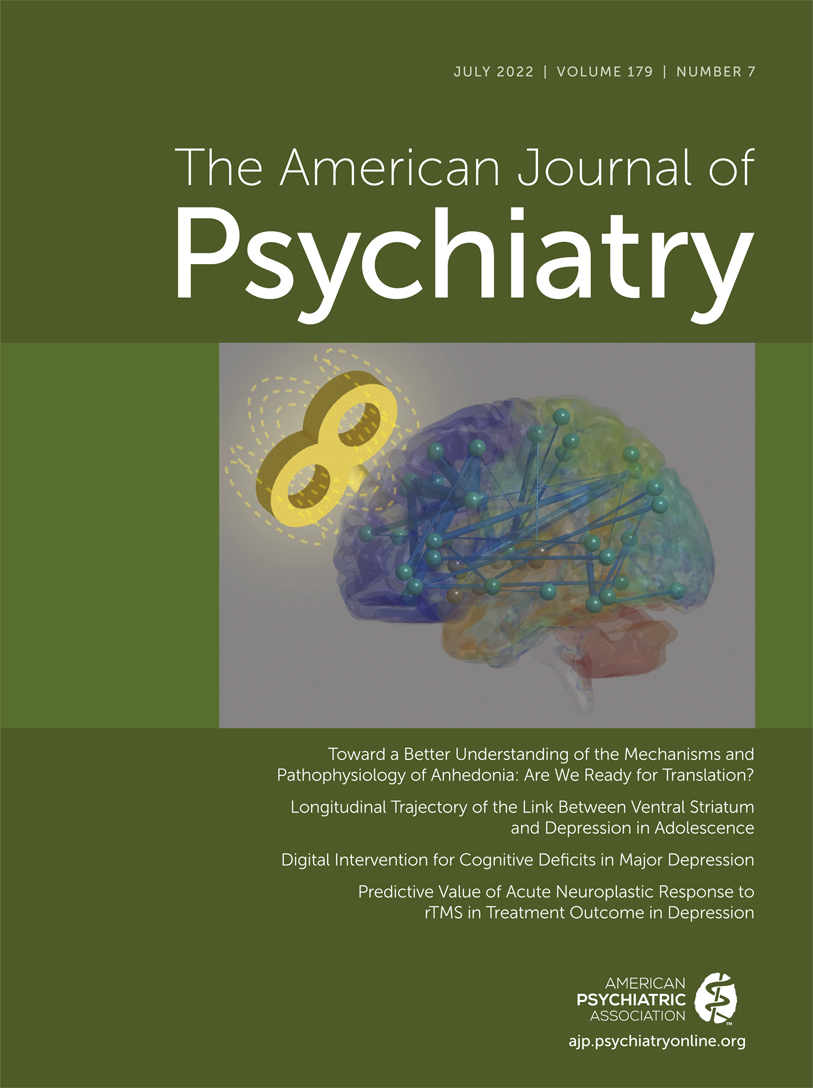Predictive Value of Acute Neuroplastic Response to rTMS in Treatment Outcome in Depression: A Concurrent TMS-fMRI Trial
Abstract
Objective:
The study objective was to investigate the predictive value of functional connectivity changes induced by acute repetitive transcranial magnetic stimulation (rTMS) for clinical response in treatment-resistant depression.
Methods:
Cross-sectional changes in functional connectivity induced by a single concurrent rTMS-fMRI session were assessed in 38 outpatients with treatment-resistant depression (26 of them female; mean age, 41.87 years) who subsequently underwent a 4-week course of rTMS. rTMS was delivered at 1 Hz over the right dorsolateral prefrontal cortex. Acute rTMS-induced functional connectivity changes were computed and subjected to connectome-based predictive modeling to test their association with changes in score on the Montgomery-Åsberg Depression Rating Scale (MADRS) after rTMS treatment.
Results:
TMS-fMRI induced widespread, acute, and transient alterations in functional connectivity. The rTMS-induced connectivity changes predicted about 30% of the variance of improvement in the MADRS score. The most robust predictive associations involved connections between prefrontal regions and motor, parietal, and insular cortices and between bilateral regions of the thalamus.
Conclusions:
Acute rTMS-induced connectivity changes in patients with treatment-resistant depression may index macro-level neuroplasticity, relevant to interindividual variability in rTMS treatment response. Large-scale network phenomena occurring during rTMS might be used to inform prospective clinical trials.



